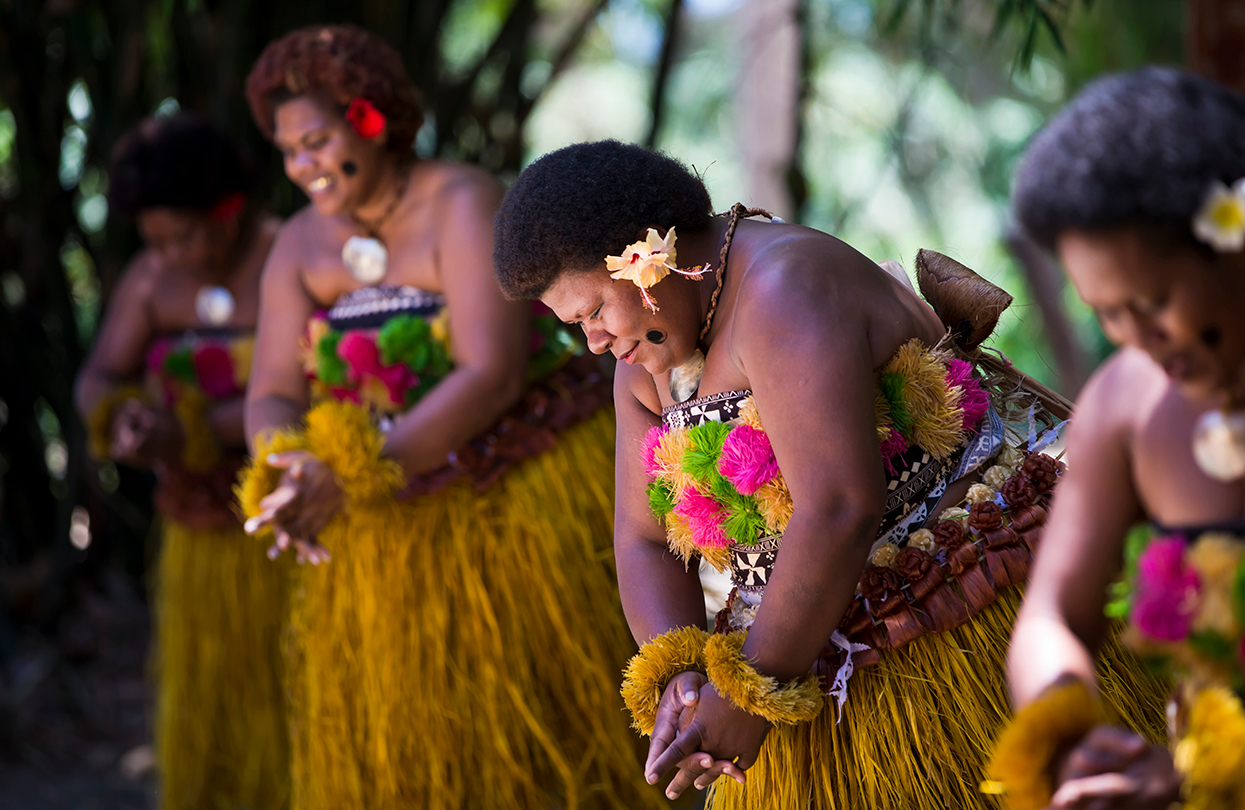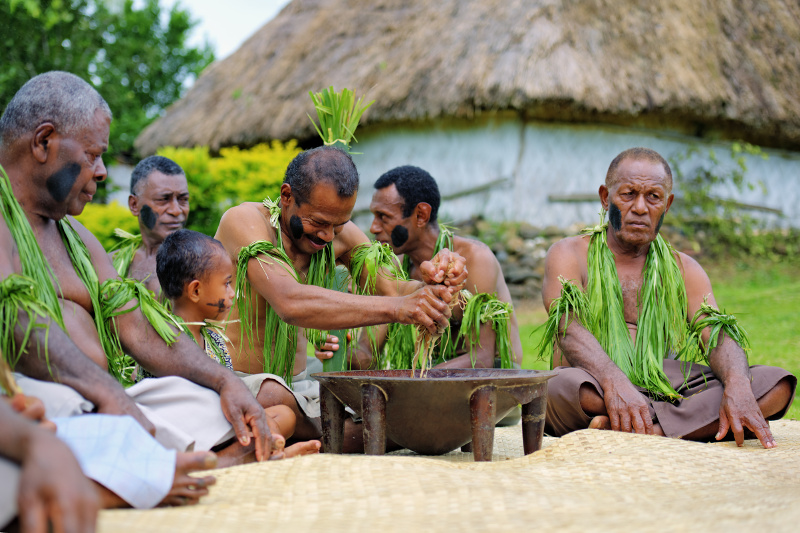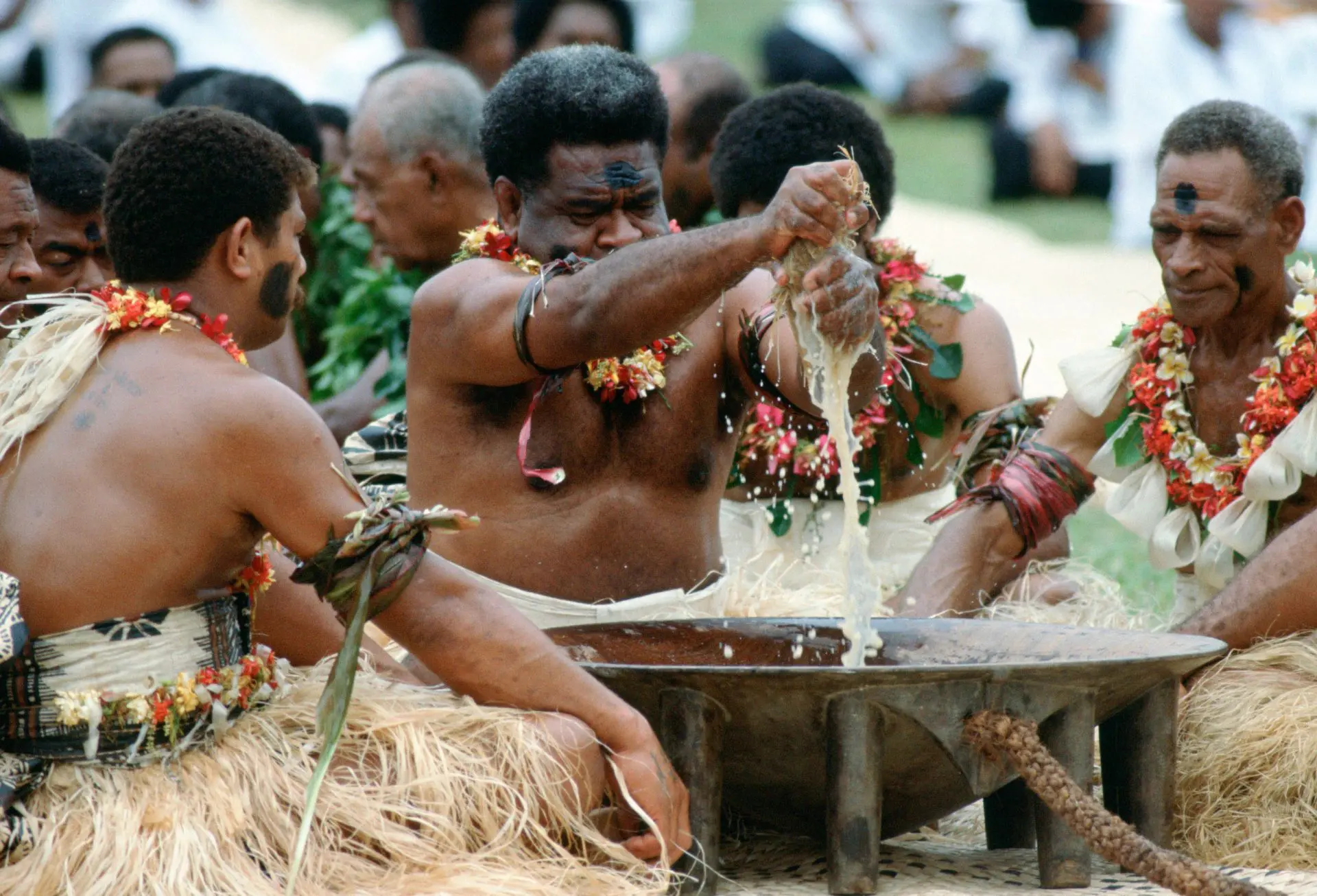Global Psychology & Mental Health
Welcome to the Global Psychology and Mental Health section of the remote internship discovery phase. Here you will find an overview of the determinants, prevalence and impact of mental illness in Fiji. Mental Healthcare provisions and Government initiatives are also outlined.
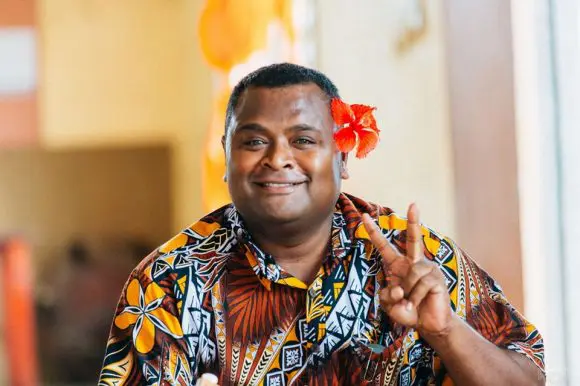
- Module 1: An introduction to Mental Health in Fiji
- Stigma and attitudes, Mental Health and Fijian youth, support and resources, suicide
Jump to Module 1
- Stigma and attitudes, Mental Health and Fijian youth, support and resources, suicide
- Module 2: Government Structure and Initiatives
- The Ministry of Health Strategic Plan, The Fiji National Development Plan, World The Health Organisation (WHO), The Fiji Mental Health Decree
Jump to Module 2
- The Ministry of Health Strategic Plan, The Fiji National Development Plan, World The Health Organisation (WHO), The Fiji Mental Health Decree
- Module 3: Culture, Identity and Globalisation
- Cultural significance of identity, Mental Health in Pacific Rugby and The impact of Globalisation on Mental Health
Jump to Module 3
- Cultural significance of identity, Mental Health in Pacific Rugby and The impact of Globalisation on Mental Health
- Module 4: Mental Health Non-Government Organisations (NGO’s) in Fiji
- Youth Champs 4 Mental Health (YC4MH), Lifeline Fiji, Fiji Alliance for Mental Health, Women’s Crisis Centre Fiji
Jump to Module 4
- Youth Champs 4 Mental Health (YC4MH), Lifeline Fiji, Fiji Alliance for Mental Health, Women’s Crisis Centre Fiji
- Test your Knowledge!
Module 1: An Introduction to Mental Health in Fiji

Like many societies globally, Fiji is struggling with increasing rates of mental illnesses. Despite its prevalence within the country, sadly, there is still a massive stigma surrounding mental illness in Fiji.
Misconceptions and stigma can promote fear and shame associated with mental illness, often attributed to cultural and superstitious beliefs. This stigma can cause Fijians to delay seeking treatment and the support they need, or lead to negative coping mechanisms when dealing with stress.
Resources and training for mental illness is desperately low. In Fiji today there remains just one psychiatric facility and just 3 doctors with postgraduate mental health training. Meanwhile, suicide rates in Fiji are disproportionately high for the population and continuing to rise.
According to Goffman (1963), stigma is an “attribute that is deeply discrediting” and makes a person feel “tainted” or “discounted” in some capacity. Essentially they are perceived as having a “spoiled identity” (see Goffman’s book – Stigma).
Professor Parmeshwara Deva (2011, Fiji National University) offers this explanation as to why he believes many Fijian’s still stigmatise mental illness:
“Many Fijians prefer to avoid thinking about or working for the welfare of the mentally-ill because of the ignorance and fear perpetuated by incarceration and institutionalisation of persons with such problems in the past”
Task:
Can you find an example of a mental health campaign (anywhere in the world) that had a positive impact on mental health stigma?
- Why was this campaign successful?
- Do you have any thoughts on how this campaign could have been improved?
- Based on what you’ve learnt about Fijian culture, do you think this campaign could be successful in Fiji?
Aghanwa (2004) conducted a study with a sample of over 900 Fijians and during this study participants were asked questions regarding mental illness. Below are some figures that were generated as a result of the discussions. These responses help illustrate Fijian attitudes and opinions towards mental illness.

There are just ten psychiatric nurses and one psychologist in Fiji. This single clinical psychologist, whose qualifications are actually unverified, works in the private sector so there are no psychologists working in the public sector.
Additionally, there are three doctors with postgraduate training in psychiatry in the country, two teach at the Fiji School of Medicine and only one of these is involved in clinical practise at St Giles hospital. This hospital, which is the sole provider of psychiatric services in the country, also employs one qualified social worker as well as three mental health ‘project officers’. These officers provide basic mental health training and support to the public health staff (mainly nurses) in their divisions.
In an attempt to increase outreach the Ministry of Health started identifying, providing counselling training and registering counsellors in the community. These community counsellors are tasked with conducting mental health awareness and advocacy activities within their respective divisions. Unsurprisingly, their training is relatively basic so their qualifications and experience have their limitations.
“Care is provided by public health nurses, doctors or physicians who often have a lack of mental health training and inadequate facilities for psychiatric patients”
(WHO MIND Series, 2009)
Have a look at the table which compares human mental health resources in Fiji and the UK. puts the information about Fiji into a more global context table by drawing a rough comparison between human resources in Fiji compared with the UK:


In addition to the stigma associated with mental illness, Fiji faces numerous other challenges when it comes to their mental health service development. This includes the lack of human and physical resources to deal with the country’s increasing levels of mental illness. These figures highlight mental health care provision as a global issue that many countries are working hard to resolve. By focusing on Fiji’s human resources it becomes much clearer why the country is struggling to cope with increasing rates of mental illness. This graph shows the number of staff, in their respective categories, per 100,000 people in Fiji.
In Fiji, suicide is considered a major issue and is thought to be the biggest cause of death for Fijian Youth (YC4MH). Fiji Lifeline, a national crisis intervention helpline released the following suicide statistics:
- In the last 5 years they reported 1199 suicide and attempted suicide cases, which averages one Fijian attempting suicide every 36 hours.
- Out of these reported cases, the number of deaths from suicide was 630 in the last 5 years. These deaths from suicide equate to over twice the total of road deaths.
According to the Crime Statstics Unit, Fijian Police:
- In 2018, suicides in under 25’s accounted for 38% of all suicides.
- In 2019, more males (61%) committed suicide than females and 72% of all suicides were committed by Fijians of Indian descent.
When you consider the population of Fiji is below one million, an average of 125 suicides per year is extremely high.
Fiji’s suicide rate is higher than the global average and statistics from the first 8 months of 2019 indicate that the issue is worsening. Here is a comparison from 2018 averages of deaths by suicide per 100,000 people:
Module 2: Government structures and initiatives

To address a range of health issues including mental health, the Fijian Ministry of Health has created a strategic plan which was designed with two strategic pillars and 8 priority areas. The areas covered in this strategy are shown in the diagrams opposite:
Increase awareness of, and capacity for education on social issues such as Drug Education, HIV/AIDS, Gender Based Violence, Respectful Relationships, Sex Education, NCD, Cyber Safety, and Mental Health
Promote population health and reduce premature morbidity and mortality due to NCDs as part of a whole-of-society approach to wellness and well-being. Expand investment in approaches to address non-communicable diseases, including nutrition, mental health and injuries, within and beyond the health sector.
Develop a productive and healthy nation through a systematic and coordinated sports development programme. Promote mental and physical well-being in partnership with the Ministry of Health and Education

The mhGAP is a program that was launched by the World Health Organization’s (WHO) in 2008 aimed at improving levels of care for people suffering from mental, neurological, and substance use (MNS) disorders. The mhGAP program is used particularly in low- and middle-income countries, and provides health planners, policymakers and donors with a clear plan to improve mental healthcare within a country. Central to this program is the mhGAP intervention guide (mhGAP-IG)— which is used by health-care providers working in non-specialised health-care environments.
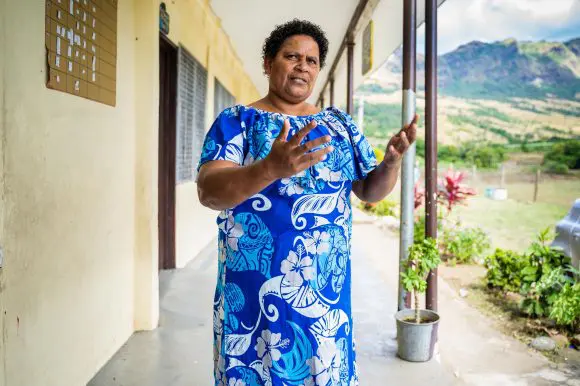
To aid the decentralisation and advancement of mental health services, Fiji’s Ministry of Health and Medical Services (MoHMS) decided to incorporate WHO’s mhGAP programme into its national mental health program. To successfully implement the programme, a large increase in mental health professionals was required. Resultingly, the country upskilled approximately 678 health workers on the use of mhGAP-IG between 2014-2017.
A study by Charlson (2019) explored the effectiveness of mhGAP in Fiji and made the following suggestions to improve their mental health program:
- Strengthen leadership and governance, train more management staff
- Continuous training and support of health care professionals
- Anti-stigma workshops for staff and communities
- Creating information and medication supply system
DISCUSSION:
Can you think of any more suggestions, in addition to the ones listed above, that would strengthen Fiji’s Mental Health Program?
The Fijian government endorsed the Mental Health Decree in 2010 to promote decentralisation of mental health services. Until this decree was implemented in 2011 mental health services were centralised at the countries only psychiatric facility St. Giles Hospital in the capital Suva. As Fiji exists as an archipelago of over 330 islands it was essential for the country to redesign their mental health services to provide integrated health care at divisional levels. A few examples of some initiatives that have been launched since the decree was introduced include the opening of mental health clinics, as well as mental health units known as ‘stress management units’ and a community based psychiatric rehabilitation and recovery outreach program in Suva.
The 3 main aims of the decree are…
1. To provide for, regulate and coordinate access to mental healthcare, treatment and rehabilitation
2. To facilitate the development of community based services
3. To integrate mental healthcare into the general healthcare systems
The 2010 decree focuses on more than just treatment in a psychiatric hospital. It states that it is a “decree to provide for the administration of mental health in Fiji and provides a framework for the prevention, treatment, care and management of mental disorders”. This framework focuses on: patients rights, treatment in the least restrictive environment, community based care and ensures adherence to international laws & conventions.
Module 3: Culture, Identity & Globalisation
Tajfel (1979) proposed the idea that we categorise ourselves and others into social groups in order to make sense of the world around us.
Examples of social groups may include:
1. Sports team
2. Family
3. Social Class
By associating people with such groups, we divide ourselves and others into ‘us’ (in-groups) and ‘them’ (out-groups) (social categorisation). We then identify with our in-group, wearing clothes our group wears or acting in similar ways (social identification). We see the group we belong to as different from ‘them’ and we draw comparisons between such groups (social comparison).
To understand more about this theory, check out this link https://www.simplypsychology.org/social-identity-theory.html
In Fiji, identity is so ingrained in their customs that the first question asked will often be “iko sa lako mai vei?” meaning, “where are you from?”.
- Where an individual originates from within Fiji is determined by the childhood village of their father.
- Incredibly, within Fijian culture this can reveal vital information such as what they are to be called, how they are to be treated, or even something more specific such as what foods can, or more crucially can not, be eaten in front of them.
- A portion of an Indigenous Fijian’s (I-taukei) identity is determined in their first sentence, and even more is revealed as questions of family name, village clan (Mataqali), and the relationship these infer, to name a few, are asked.
With this strong sense of identity and therefore belonging, it is no surprise that Fiji has such wealth in family, community and culture.
As explained in the video, Fijian men typically pride themselves as being strong heads of the family. With this categorisation, the men may choose to identify themselves with this Fijian male ideal, potentially meaning that they will be hesitant to seek mental-illness care as may be seen as a sign of weakness.
In Fiji, sport is closely tied to social identity. Specifically, in Fiji, rugby is like a religion. . Those who play high level are displayed proudly on their Fijian village welcome sign. Naturally, a huge amount of pressures, from family level to fan level, will be placed on those individuals. A recent study by Marsters and Tiatia-Searh (2019), revealed that a ‘positive’ mental wellbeing was associated with performing well and being at peak physical wellbeing in the rugby setting.
Dan Leo, former Samoa International rugby player, presents a short documentary on what it’s like to play high-level rugby as a Pacific Islander, and how it affects mental health.
Caleb Marsters and Jemaima Tiatia-Seath (2019)
Globalisation is the process by which the world is becoming increasingly interconnected as a result of massively increased trade and cultural exchange.
One of the knock-on effects of globalisation can be loss of culture and identity.
Have a think about the following questions whilst remembering… a Fijians family and support forms a huge base for their solid mental health, how might globalisation affect this?
- What might be some of the knock-on effects of this globalisation induced loss of identity and culture for a country so rich in both?
- How else might globalisation have led to an increase in instances of ill mental health?

You cannot spend time within a Fijian village without hearing the phrase ‘kana vaka levu’ or ‘eat big’ every meal time. ‘You’ve gained weight’ is often a traditional compliment in Fiji, where bigger is better. However, as Fiji becomes more accustomed to the Western world, times are changing…
Relatively speaking, Fiji had one of the later arrivals of television. Prior to this, Fiji appeared to have recorded zero eating disorders. However, with the introduction of TV came the introduction of seductive commercials, TV programs and films. This introduction of TV lead to the perfect setup for a study looking at the effect this had. In a study by Becker (2004), Fijian secondary school girls were interviewed in response to television (having had TV introduced 3 years prior), including how this affected their self-image.
Worryingly, it was found that 11.3% of adolescent girls said they’d tried purging to lose weight at least once. Of those who watched TV 3+ times a week, 50% of the girls were more likely to describe themselves as “too big” or “too fat” and 30% were more likely to diet than those who watched TV less.
Becker (2004)
Reflection:
In recent years, various mental health awareness challenges have gone viral across social media.
- What do you see as the advantages of viral #mentalhealthawareness campaigns?
- Can you think of any challenges these viral campaigns may create?
Module 4: Mental Health Organisations in Fiji
Despite growth in the number of mental health organisations in Fiji since the early 2000s, this number is still very low compared to number of organisations offering support to more economically development countries. Fijian organisations are poorly funded, rely heavily upon local volunteers and have limited capacity to deal with the lack of mental health services in Fiji and address the stigmas surrounding mental health.
Most of the solutions commonly posed within the Fiji Journal of Public Health and by the WHO centre around mental health awareness and education of Fijian communities. Therefore some of the key areas of focus look to:
1. Decentralise mental health services from urban areas to community based support and services
2. Promote awareness of mental health within communities
3. Train and upskill health care professionals
Youth Champs for Mental Health (YC4MH) is a volunteer youth-based organisation which designs and delivers awareness-raising, education and advocacy campaigns to improve the conditions facing survivors of mental illness, and raise awareness on youth suicide.
Some of the major barriers to growth highlighted by YC4MH include expertise in research, finance management and program development, as well as funding and retention of volunteers.
One of Fiji’s growing concerns around mental health is suicide, with over 110 Fijians committing suicide every year and 20 attempts per completed suicide. Lifeline Fiji is a volunteer-based organisation that provides Fijians with a 24/7 free crisis helpline, as well as promoting mental health and community-based support. Lifeline Fiji is made up of team of young, vibrant staff and they are led by a prominent youth leader, Mr. Jeremaia Merekula. Lifeline Fiji recruit and train passionate volunteers to become Crisis Intervention Workers within the service.
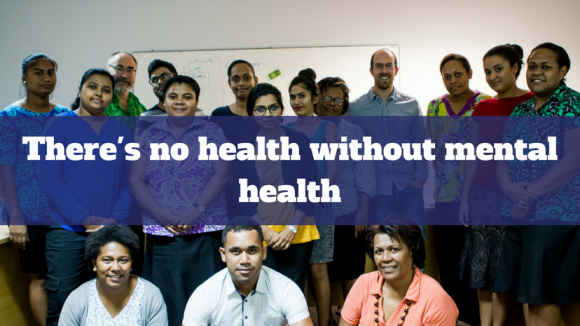
Launched in 2010, FAMH set out to educate the community, including activities and campaigns to reduce stigma. FAMH train survivors of mental health to work within the charity, enabling key input from first-hand experiences.
At no cost to the individual, woman who have experienced rape, domestic violence and sexual assault can can receive support and assistance through the FWCC. The Women’s Crisis Centre provides training for violence prevention in the community, businesses, high schools, middle schools and organisations. They also offer both residential services (shelter with 24/7 counsellor assistance) and non-residential services (24/7 helpline, support groups).



